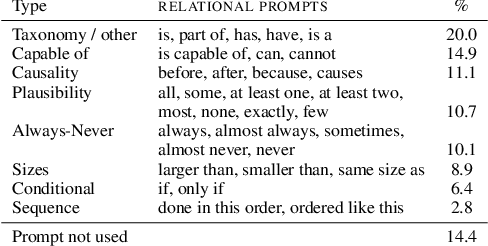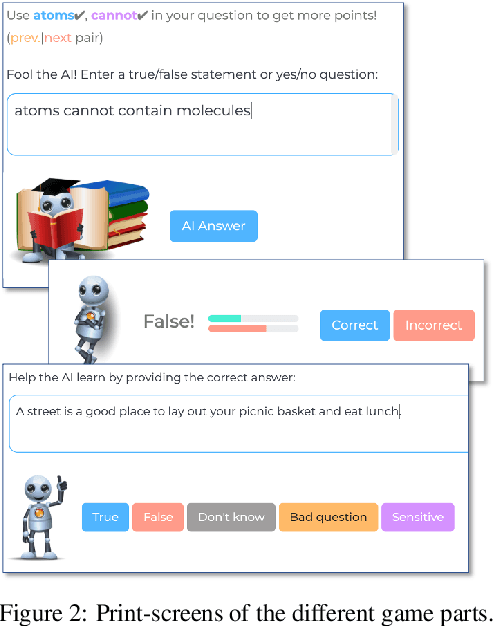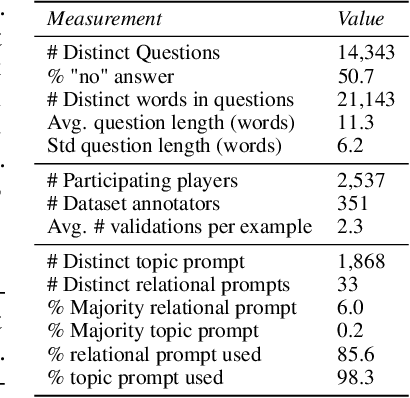CommonsenseQA 2.0: Exposing the Limits of AI through Gamification
Paper and Code
Jan 14, 2022



Constructing benchmarks that test the abilities of modern natural language understanding models is difficult - pre-trained language models exploit artifacts in benchmarks to achieve human parity, but still fail on adversarial examples and make errors that demonstrate a lack of common sense. In this work, we propose gamification as a framework for data construction. The goal of players in the game is to compose questions that mislead a rival AI while using specific phrases for extra points. The game environment leads to enhanced user engagement and simultaneously gives the game designer control over the collected data, allowing us to collect high-quality data at scale. Using our method we create CommonsenseQA 2.0, which includes 14,343 yes/no questions, and demonstrate its difficulty for models that are orders-of-magnitude larger than the AI used in the game itself. Our best baseline, the T5-based Unicorn with 11B parameters achieves an accuracy of 70.2%, substantially higher than GPT-3 (52.9%) in a few-shot inference setup. Both score well below human performance which is at 94.1%.
 Add to Chrome
Add to Chrome Add to Firefox
Add to Firefox Add to Edge
Add to Edge